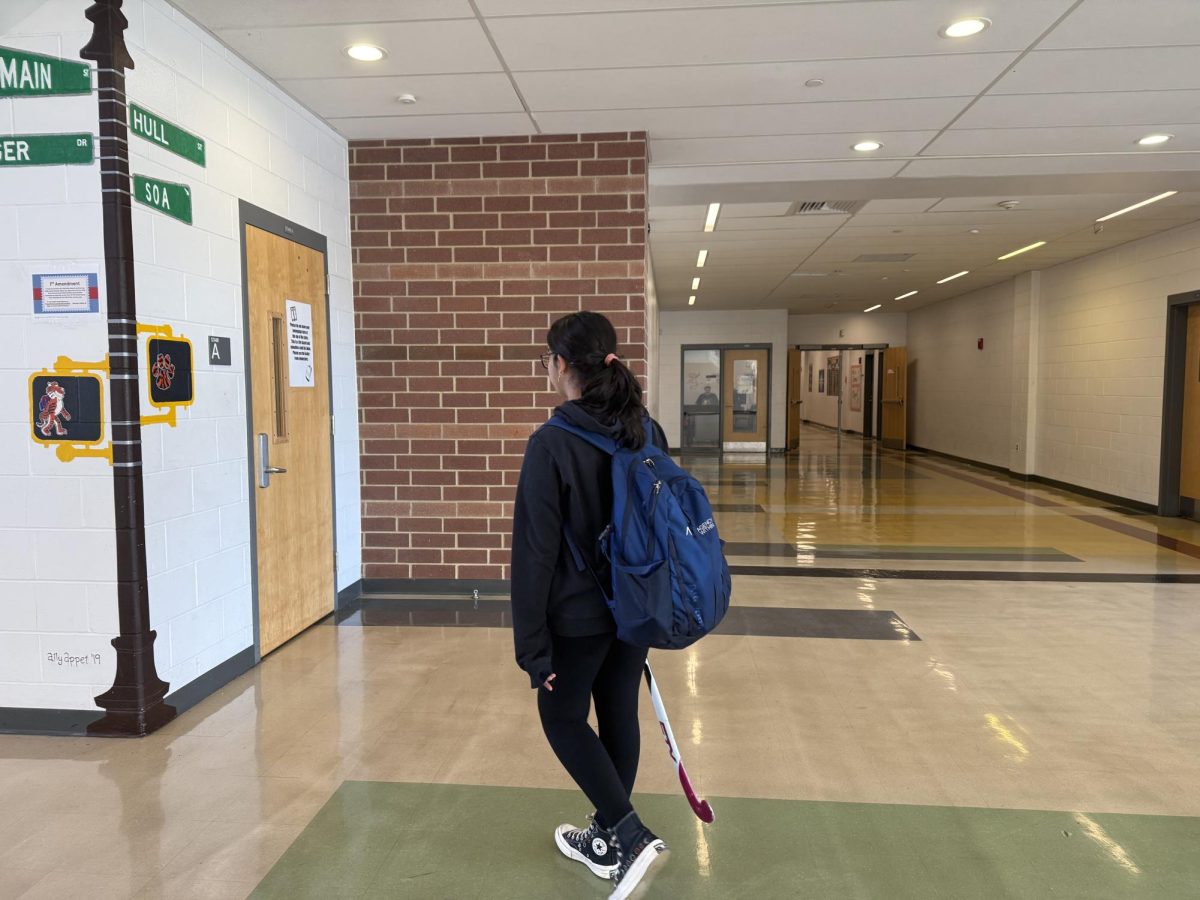by Samantha Libraty
Students around the nation, including students at this school, have decided to speak up on behalf of Trayvon Martin, a 17-year-old African-American student who was killed on the night of Sunday, February 26.
Many people believe that Martin’s death was connected to racism, because at the time he was shot, his killer, George Zimmerman, believed Martin looked suspicious wearing a black hoodie. Zimmerman, who is a white Hispanic man, has cited the Stand Your Ground law in Florida, which states that a person can act in self-defense if there is a possible threat, as a reason why he killed Martin.
Movements across the nation have sprung up in response to the Trayvon Martin case, because many aspects of it are controversial and people are upset about how it has been handled. Some people say that if Martin were white, he would not have been targeted, and that if Zimmerman were not white, he would be further investigated and prosecuted.
Students have decided to speak out about racism and bringing awareness to others relating to the Martin case.
History teacher John Fitzgerald, English teachers Peter Goddard and Kim Parker held a Teach In on the Trayvon Martin movement and case Thursday, April 12.
A Teach In is a presentation and a discussion that includes teachers and students, Goddard said.
“This is too big a situation to let it just pass by. We want students and teachers to know the facts and talk about how it affects them and what they think of what is going on.”
The Teach In was open to all students, and the purpose was to educate everyone on the Trayvon Martin’s case and how they felt about it, Goddard added.
Nine students and eight teachers attended and talked about facts of Martin’s case and the racial profiling that was allegedly involved.
Fitzgerald, who presented some statistics on African-Americans in the United States, said, “I am going to editorialize because I believe that Martin was racially profiled and was killed for being African-American. There are so many issues that come up around this case, but I believe this is one of the biggest topics.
“In the United States, African-Americans are more likely to be pulled over in their cars, searched for illegal objects and go to prison. These are just some facts that back up that there is racial prejudice in the United States,” he said.
Goddard said, “I feel that if an African-American man had killed a white man, he would have been prosecuted a lot sooner. Although Zimmerman has been charged with second-degree murder, if it had been another situation, he would have been charged sooner.”
Goddard hopes to hold another discussion about Trayvon Martin’s case that will include more students and faculty.
“It is important to be aware and talk about things like this. Hopefully other students will see that talking about Martin and issues that come up around this case are important for them to do,” he said.
Also at this school, students and teachers have found ways to become more involved in the Trayvon Martin movement, because they feel connected to the story of a young African-American student.
 [/media-credit]
[/media-credit]Over the next few weeks, sophomore Jermel Wright will be selling pins to raise money for Trayvon Martin’s family, he said.
“I wanted to sell pins because I thought it would be a great idea for a good cause, and I thought it was an affordable way to help out Trayvon’s family,” Wright said.
“I just wanted to do my part to help, and I can only imagine how his family is feeling,” he said.
Wright, who is African-American, said, “I think that the fact that the color of Trayvon’s skin determined his life made me think about how it could have been me or any of my friends.”
“Keeping everyone aware of this situation is my main goal, and if I can get as many people as possible to understand the situation and support this cause, we can raise a lot of money to give to the Martin family,” he said.
The Black Leadership Advisory Council (BLAC) has a similar goal, said senior Robyn Estwick, the president of BLAC.
At a meeting Monday, March 19, BLAC members discussed how they could support and spread the word about Martin’s case, Estwick said.
“We tweeted about Trayvon Martin on my Twitter account in order for people to know more about it, and we talked about speaking up about racism and other acts of violence related to racism,” she said.
“After tweeting about the issue, we discussed other ways to support Martin’s family, but we have not decided on anything,” Estwick added.
Besides selling pins and discussing possible action, people around the country have decided to put pressure on government officials in order to get justice for Martin and his killer.
English teacher Derek Knapp gave his students the option to write a letter to the U.S. attorney general Eric Holder, urging him to become more involved in the handling of the Martin case, Knapp said.
“We are currently working on a unit dealing with power and privilege, which we will then use what we learn as a means to study several works of literature. Based on what we know from the media, Martin’s case presented an opportunity for students to see a contemporary example of cultural racism connected with power and privilege,” he said.
“I gave the students a choice on which topic to write about, and 33 out of my 43 students decided to write to Eric Holder, and some are arguing that while Martin’s killing is a tragedy and was mishandled by the police department, it is not tied to racism,” Knapp said.
When asked why he thought so many of his students were pulled toward Martin’s story, he answered, “I think students became aware of the privileges that many of them have in our society, and they have seen an opportunity to do something with those privileges.
“But I also wonder if students felt a connection to Martin because he was so close to their age,” Knapp added.
Many teenagers share a similar sense of suffering or exclusion and that is why they felt connected to the story, he said.
Students from this school and others have decided to take action. Whether it be selling pins, writing letters or letting other people know about Trayvon Martin, “students should support the cause because it affects everyone around us,” Wright concluded.








































